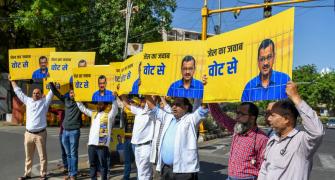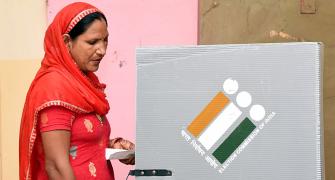Pune businessman Maqsood F. Nazir's family initiated the claim process on health insurance policy by New India Assurance soon after the 51-year-old was admitted to a hospital a month back and was recommended a bypass for multiple blockages in his heart.
Says Shabnam, his wife: "We intimated the diagnosis to the TPA with the help of the hospital, but the matter went to the insurer in the Chennai office as the claim amount was huge." The insurance claim process started a week before the surgery, but the authorisation did not materialise in time.
"The operation cost us about Rs 240,000. We were banking on the policy, but the relief came late. We had to manage the bill ourselves," says Maqsood.
The authorisation was, however, approved a day after the operation and Nazir got his insurance money. "I had claimed insurance earlier too when I had fractured my leg and when my son was hospitalised, but I didn't have to shell out any cash then," he says. "That's perhaps because the claims weren't that big and didn't require an intensive scrutiny of facts," reasons Shabnam.
This kind of experience is common while raising a claim on a health insurance policy. Claims are often marred by delays, rejections and mistakes. Says Maqsood, "The systems are not robust and there is lack of manpower." This, indeed, may be the state of affairs, but you can help yourself by understanding the processes involved and the things you need to do to raise a claim.
The procedure. Cashless settlement is the norm in medical insurance policies. Insurers hand over two important documents to the policyholders. The first is a list of hospitals across India empanelled with the insurer.
The second is an identity card which also has the contact details of the third party administrator, an entity appointed by the insurer to act as an intermediary between the hospital and the insurer to settle claims. Store the TPA's number given on the card in your mobile.
Choose one of the empanelled hospitals for your treatment. If you don't have the list, call up your TPA for help. Typically, if you go to a hospital that is not part of the network, you will have to foot the bills yourself and then follow it up with the TPA later to get your reimbursement.
Says C Chandra Shekhar, chief marketing officer, Apollo DKV Health Insurance, a standalone health insurer, "Most of the well-known hospitals are well networked with the insurers now. However, you will need to follow the reimbursement method with some small clinics and hospitals that may not be part of the network."
Keep the documents safely. In fact, if you have their photocopies at home and tell your family members where they are kept, you would not be stranded in an emergency or when you misplace your set.
In the hospital, show your TPA card and fill the authorisation form. The hospital will then send the interim cost structure based on the prognosis to the TPA, which will be having your data record. The TPA will check the documents and approve or reject the authorisation.
In the meantime, you will be admitted to the hospital and your treatment will begin. However, whether you need to pay or not will depend on the authorisation. Says Chandra Shekhar, "If the TPA authorises the claim, the policyholder does not have to shell out a paisa as the hospital directly furnishes the final cost on discharge with the TPA. But if the claim is rejected, the policyholder has to follow it up himself after settling his dues with the hospital." The medical cover for the year stands reduced by the claim amount.
The practice. This apparently simple process may run into any one of several glitches. One of these is thin manpower, as experienced by Nazir. "Even something as inconsequential as the server being down can cause delays," says Deepak Mendiratta, managing director, Health and Insurance Integrated, a corporate insurance solution provider which is a link among the hospital, TPA and the insurer.
Mendiratta adds, "More serious issues could be incorrect or incomplete information furnished by the hospital. Or notice about renewal of the policy may not have come to the TPA from the insurer."
The solution. You cannot control what happens at the TPA end, but being prompt and accurate can make matters easier for you. You need to know very well what your policy covers and what it doesn't - any limits on the room rent, doctor's fees and medicines, for instance.
Overshooting these limits might create problems while getting the authorisation approved. The most important thing is to initiate the claim well in advance. Says Chandra Shekhar, "Hospitalisation is elective in 97 per cent of the cases and can be planned well in advance. Initiate the process at least a week in advance."
The authorisation is valid for 15 days to a month, so it pays to start the process early. Store the TPA's number and keep your family in the loop about it as it helps to get directly in touch with the TPA in emergencies.
Says Shreeraj Deshpande, head, health insurance, Bajaj Allianz General Insurance, which has an in-house TPA function: "If there is an emergency, you need to get in touch with the call centre at the earliest. Once our call centre is alerted, we follow it up with the hospital for the pre-authorisation."
However, if there is a delay, you may have to check with the TPA yourself. Keep all the relevant documents like doctor's prescriptions, diagnosis reports and hospital bill ready.
The bottomline is: Don't lose what's due to you due to yourself.







